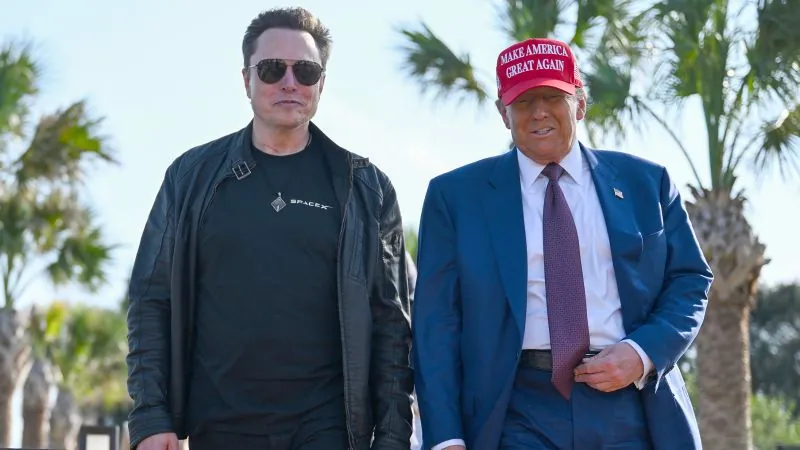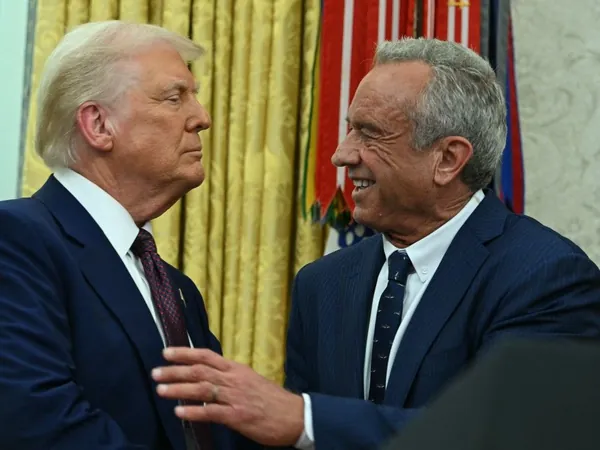
The Battle Over H-1B Visas: A Sign of Trump’s Administration Dynamics?
2024-12-30
Author: Noah
As Donald Trump prepares to enter the White House for a second term, his recent endorsement of Elon Musk’s stance on H-1B visas highlights a growing rift within the MAGA coalition and raises questions about the future direction of his administration. This controversy is not just a simple immigration issue; it's a flashpoint that reveals the competing interests between Trump’s base and the powerful establishment figures with whom he’s now aligning.
The debate over H-1B visas—programs which allow US companies to employ foreign workers in specialty occupations—came to a head when Musk publicly referred to the program as essential for attracting talent. In a series of bold declarations on his platform X, Musk defended the importance of these visas for high-tech industries, arguing that they are critical for innovation and economic growth. “The reason I’m in America... is because of H-1B,” Musk declared, threatening to fight fiercely against any attempts to restrict the program.
However, the response to Musk's statements has been mixed even within Trump’s camp. Steve Bannon, a former adviser to Trump, condemned the H-1B visa system as a neoliberal scheme that jeopardizes American jobs, labeling it a “scam” designed to benefit Silicon Valley elites at the expense of American workers.
This visa debate symbolizes more than just an immigration issue; it mirrors the evolving complexities of Trump’s political coalition. Many of his staunch supporters hold a hardline stance against immigration, clinging to the America First doctrine that initially galvanized his base. Critics argue that the reliance on foreign workers under the H-1B program contradicts Trump’s promises to prioritize American job seekers, particularly at a time when economic concerns still loom large in the minds of many voters.
Yet, if one looks deeper, the potential influence of Musk on Trump’s policies hints at a more intricate relationship between tech innovation and national interest. The H-1B visa









 Brasil (PT)
Brasil (PT)
 Canada (EN)
Canada (EN)
 Chile (ES)
Chile (ES)
 Česko (CS)
Česko (CS)
 대한민국 (KO)
대한민국 (KO)
 España (ES)
España (ES)
 France (FR)
France (FR)
 Hong Kong (EN)
Hong Kong (EN)
 Italia (IT)
Italia (IT)
 日本 (JA)
日本 (JA)
 Magyarország (HU)
Magyarország (HU)
 Norge (NO)
Norge (NO)
 Polska (PL)
Polska (PL)
 Schweiz (DE)
Schweiz (DE)
 Singapore (EN)
Singapore (EN)
 Sverige (SV)
Sverige (SV)
 Suomi (FI)
Suomi (FI)
 Türkiye (TR)
Türkiye (TR)
 الإمارات العربية المتحدة (AR)
الإمارات العربية المتحدة (AR)